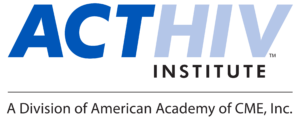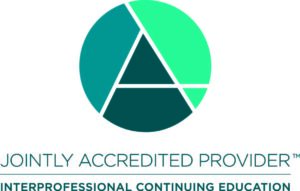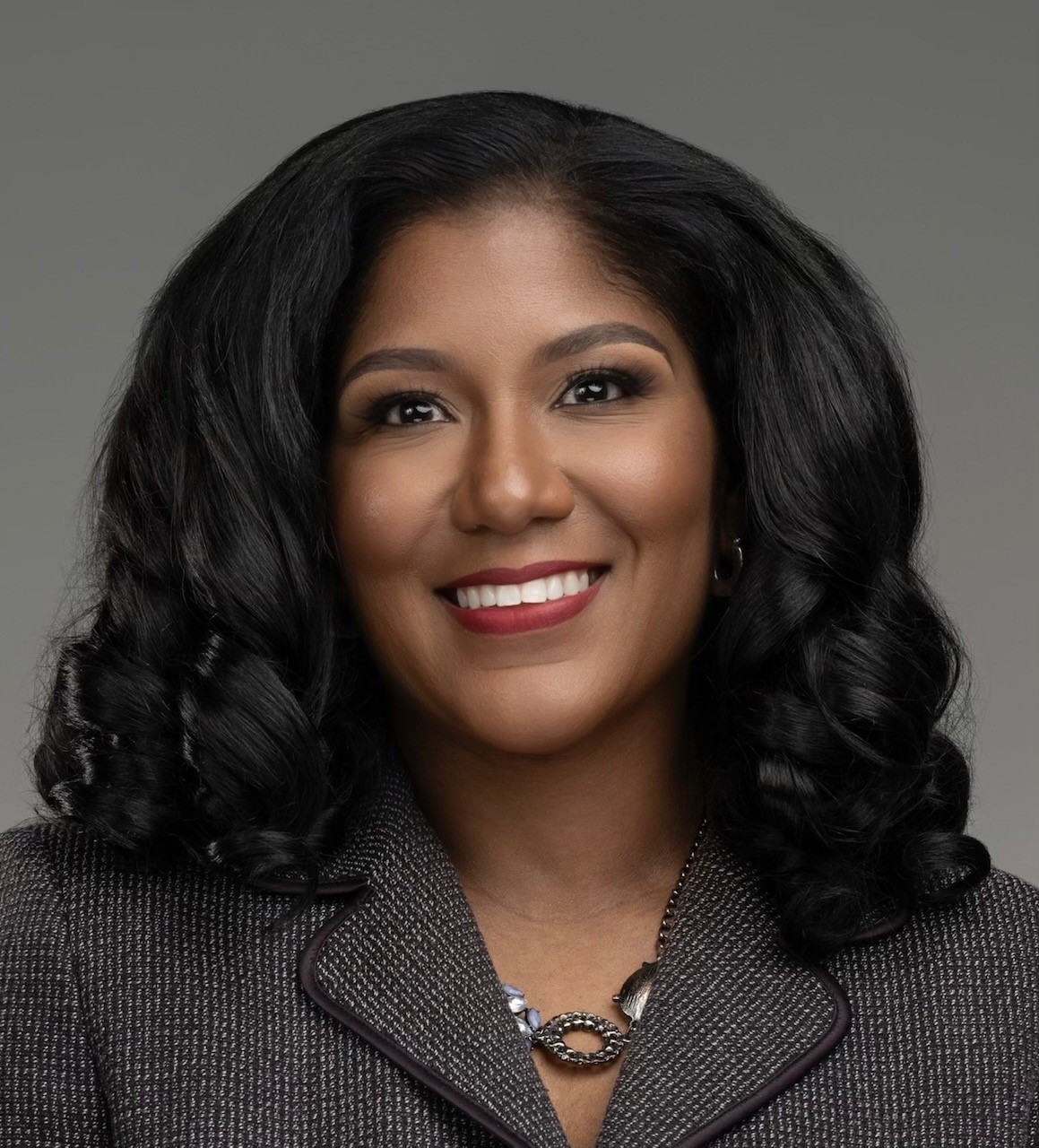Case Studies in HIV Prevention among Adolescents and Young Adults
|
Release Date: December 23, 2024 |
 |
Support for this activity has been made possible through an educational grant from Gilead Sciences. |
Webinar Highlights:
HIV is a preventable disease. As clinicians we have the tools to protect our patients, and as members of the public health community, we have the tools to end the HIV epidemic. In 2019, the US announced the End the HIV Epidemic (EHE) initiative. EHE’s goals include reducing new HIV infections in the United States by 75% by 2025 and by 90% by 2030 and advancing health equity by scaling up HIV prevention and treatment strategies. The pillars of the plan are:
- Diagnose all people with HIV as early as possible
- Treat people with HIV rapidly and effectively to reach sustained viral suppression.
- Prevent new HIV transmissions by using proven interventions, including pre-exposure prophylaxis (PrEP) and syringe services programs (SSPs).
- Respond quickly to potential HIV outbreaks to get vital prevention and treatment services to people who need them.
Preventing HIV in our own communities requires proactive, interdisciplinary care based on these time-proven methods. Using a practical case-based approach, this webinar will review the basic principles of HIV prevention including U=U, safer sex, and PrEP, and will discuss the essential need for teamwork in providing HIV prevention as an integrated part of sexual healthcare for adolescents and young adults.
Learning Objectives
- Review rationales for increasing youth access to PrEP, the concept of risk within social networks, and how PrEP eligibility criteria pertain to youth
- Comfortably explain and offer Pre-Exposure Prophylaxis (PrEP) to adolescents and young adults.
- Identify opportunities for interdisciplinary collaborations that create clinical environments which help connect youth to HIV prevention care.
- Describe testing guidelines and lead in periods for long-acting PrEP injectables as well as how to explain and counsel effectively about “the tail.”
What You Can Expect:
- Practical Application of the Science: Our expert faculty educators will guide you through this engaging and informative program, and offer suggestions on how you can apply the latest science to patient care.
- Patient-Centered Care: Learn from faculty who are directly involved in patient care about strategies for providing compassionate care that addresses individuals’ unique needs and challenges.
- Team Focused: Explore how HIV clinicians from multiple professions are collaborating to optimize patient care.
By participating, you’ll not only enhance your professional development but also be better prepared to contribute as an HIV team member toward better healthcare outcomes for your patients.
Activity Faculty
|
|
Faculty Bios:
Roberta Laguerre-Frederique, MD, received her medical degree from the State University of New York, Health Science Center at Brooklyn. She then completed a pediatric residency training program at Albert Einstein Medical Center in Philadelphia. Dr. Laguerre-Frederique continued to serve the Philadelphia community after residency as a general pediatrician with the Philadelphia Department of Public Health. In 2004, she started caring for infants, children and adolescents affected by HIV disease as Clinical Director of the Dorothy Mann Center (DMC) for Pediatric & Adolescent HIV at St. Christopher’s Hospital for Children. Dr. Laguerre-Frederique is also an Assistant Professor of Pediatrics at Drexel University College of Medicine. She is board certified by the American Board of Pediatrics and is a credentialed HIV Specialist as designated by the American Academy of HIV Medicine. In 2013, Dr. Laguerre-Frederique started her current role as the Director of Prevention and Outreach Services at the DMC. In addition to her decades-long commitment to caring for children and youth living with HIV, she is now equally committed to youth HIV prevention care. Dr. Laguerre-Frederique looks for every opportunity to share best practices with her colleagues with the hope that every young person has access to state-of-the-art HIV treatment and prevention services.
Maria Teresa (Tess) Timoney RN, CNM, NP, is a Technical Advisor and Clinical Coordinator at ICAP Global Health at Columbia University. She currently works on clinical trials and contributes to the international efforts on expanding cervical cancer screening and treatment. Prior to joining ICAP, Tess spent over 20 years as a Certified Nurse Midwife at BronxCare Health System, a community-based hospital in the South Bronx, providing care to women served by the AIDS Program. As Director of HIV Services for Women from 2009 to 2021, she led an interdisciplinary team of physicians, nurses, social workers and community health workers in providing integrated care to women and families living with and at-risk for HIV. She designed and implemented PrEP/PEP screening for Ob/Gyn and the Ambulatory Care Network. Tess currently serves on the New York State Department of Health, AIDS Institute Clinical Guidelines Program where she is a member of the Medical Care Criteria Committee and was previously the Perinatal HIV Care Guidelines Committee. In 2016 Tess completed the Greater New York Hospital Association United Hospital Fund Clinical Quality Fellowship Program. She received both her BSN and MS in Nurse Midwifery from the Columbia University School of Nursing.
Target Audience:
Accreditation and Credit Designation

In support of improving patient care, American Academy of CME, Inc. is Jointly accredited by the Accreditation Council for Continuing Medical Education (ACCME), the Accreditation Council for Pharmacy Education (ACPE), and the American Nurses Credentialing Center (ANCC), to provide continuing education for the healthcare team.
Physicians
American Academy of CME, Inc., designates this enduring material for a maximum of 1.25 AMA PRA Category 1 CreditsTM. Physicians should claim only the credit commensurate with the extent of their participation in the activity.
NPs and Nurses:
American Academy of CME, Inc., designates this educational activity for 1.25 ANCC contact hours
(1.0 Pharmacotherapeutic Contact Hours).
California
Provider approved by the California Board of Registered Nursing, Provider Number CEP16993 for 1.25 contact hours.
Physician Assistants
American Academy of CME, Inc. has been authorized by the American Academy of PAs (AAPA) to award AAPA Category 1 CME credit for activities planned in accordance with AAPA CME Criteria. This activity is designated for 1.25 AAPA Category 1 CME credits. Approval is valid until December 23, 2025. PAs should only claim credit commensurate with the extent of their participation.
All other members of the care team will receive a certificate of participation.
Disclosures
According to the disclosure policy of the Academy, all faculty, planning committee members, editors, managers and other individuals who are in a position to control content are required to disclose any relationships with any ineligible company(ies). The existence of these relationships is not viewed as implying bias or decreasing the value of the activity. Clinical content has been reviewed for fair balance and scientific objectivity, and all of the relevant financial relationships listed for these individuals have been mitigated.
Faculty Educator/Planner Disclosures
Maria Teresa Timoney RN, CNM, NP: No relevant financial relationships to disclose
Roberta Laguerre-Frederique, MD, AAHIVS: Advisory Board/Consultant-ViiV Healthcare, Pfizer
Planning Team:
Jonathan Colasanti, MD; Courtney Fletcher, PharmD; Jose Gutierrez, PhD, FNP-BC; Asa E. Radix, MD, PhD, MPH; John JD Juchniewicz, MCIS, CHCP, FACEHP; Natalie Kirkwood, RN, BSN, JD; Daiquiri Y. Robinson, MEd: No relevant financial relationships to disclose.
Roger Bedimo, MD, MS: Advisory Board/Consultant – ViiV Healthcare, Gilead Sciences, Merck, Theratechnologies, Janssen, Shionogi; Grant/Research Support – Merck
William R. Short, MD, MPH: Advisory Board/Consultant – ViiV Healthcare, Gilead Sciences; Grant/Research Support – Gilead Sciences, Janssen*
H. Nina Kim, MD, MSc: Grant/Research Support – Gilead Sciences
Sarah Smith, MHS, PA-C, AAHIVS: Advisory Board/Consultant – ViiV Healthcare, Gilead Sciences, Janssen, Merck; Speakers Bureau – ViiV Healthcare, Gilead Sciences, Janssen, Merck
*Relationship has ended.
This activity does not include information about off-label uses of approved agents and/or investigational agents.
The opinions expressed in this accredited continuing education activity are those of the faculty, and do not represent those of the Academy/ACTHIV® Institute. This educational activity is intended as a supplement to existing knowledge, published information, and practice guidelines. Learners should appraise the information presented critically, and draw conclusions only after careful consideration of all available scientific information.
Implicit Bias
Implicit bias refers to unconscious attitudes and stereotypes that influence our thoughts, judgements, decisions, and actions without our awareness. Everyone is susceptible to implicit bias, even clinicians. In healthcare, implicit biases can have a significant impact on the quality of care an individual receives. These biases can be both favorable and unfavorable, and are activated involuntarily without an individual’s awareness or intentional control.
Studies have indicated that healthcare providers’ incorrect perceptions can impact providers’ communications and clinical decision-making contributing to disparities in clinical outcomes. Addressing implicit biases in healthcare is critical to improving health outcomes and promoting health equity for all patients. Patient-centered care can reduce the impact of implicit bias, by treating each patient as a unique individual who may or may not hold beliefs associated with their backgrounds and circumstances. In addition, recognizing implicit bias in one’s own practice using techniques such as self-reflection and mindful clinical decision-making can ensure more equitable and effective care to all patients.
Over the past several decades, cognitive science research has demonstrated human behavior, beliefs and attitudes are shaped by automatic and unconscious cognitive processes. The healthcare profession is devoting greater attention to how these automatic and unconscious processes impact care including: (1) preferential treatment toward or against specific patient populations causing healthcare inequities, (2) influence patient-provider communications leading to misunderstandings and mistrust, and (3) impact access to healthcare and affect treatment decisions resulting in misdiagnosis, delays in treatment and specialty referrals and poor pain management.
Considering one might have unconscious biases and exploring them may be uncomfortable because the very idea that they exist may conflict with how clinicians perceive themselves. It is only by becoming aware of one’s unconscious biases that members of the healthcare team can take steps to mitigate them to ensure all their patients are treated receive quality healthcare.
Instructions on How to Receive Credit
There are no fees to participate in the activity. Participants must review the activity information including the learning objectives and disclosure statements, as well as the content of the activity. To receive CME/CE credit for your participation, please complete the post-assessment and program evaluation. Your certificate will be available for printing immediately.
Privacy and Contact
For more information about the American Academy of CME privacy policy, please access http://www.academycme.org/privacy.htm For any questions, please contact: [email protected].
Hardware/Software Requirements
This program should be viewed at a resolution of 1024 x 768 or higher using current versions of Microsoft Internet Explorer, Firefox, Chrome or Safari. A high-speed Internet connection is recommended.
Copyright
© 2024. This accredited continuing education activity is held as copyrighted © by American Academy of CME. Through this notice, permission is granted for its use for educational purposes only. These materials may not be used, in whole or in part, for any commercial purposes without prior permission in writing from the copyright owner(s).


